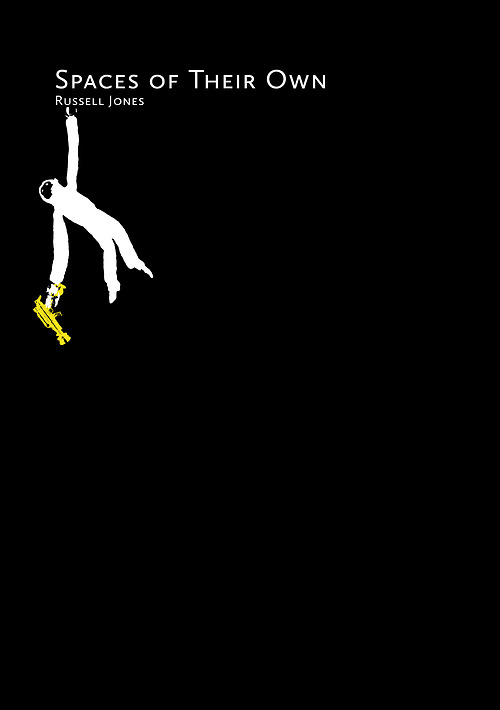‘Treasure in the History of Things’ by Katherine McMahon
-Reviewed by Dana Bubulj–
Published by Stewed Rhubarb Press, Treasure in the History of Things by Katherine McMahon (of the Inky Fingers collective) is a gorgeous pamphlet of twelve poems, complete with an audio CD of them performed accompanied with the occasional music and atmospheric sound-base. McMahon really impressed us when we caught her perform in Edinburgh this Summer, so that it seemed fitting to review how her words translate to the page. While the CD is a nice touch in principle, her engaging performance is slightly lost in the recording, a weak reminder of the real thing. Fortunately, the pamphlet itself holds up well to individual scrutiny.
The poems could be split into two categories: that of finding and developing a personal, poetic voice and using that voice to evoke memories of past relationships. Some of the strongest images are in the latter, firmly tied to weather and seasonality, with the warmth of beds like the “leaf litter in the summertime” (‘Afforestation’) and berries shared between lovers like “shared secrets” (‘Blackberries’).
‘Blackberries’, one of my favourites in the book, features a lovely line about giving blackberries to a small child who’d not seen them before: ‘wide-eyed, he put it in his pocket for safekeeping’. It’s fitting that this first poem in the collection echoes the idea of preserving memories for our delight. Another stand-out poem, ‘Gold’, expresses the lure of the past, like “pie-steam from an open window” without becoming maudlin. Instead, it acknowledges the changes in people and relationships: the ‘sticky stained glass’ of boiled sweets in the ‘gingerbread home’ past is too sickly to last for instance, leading McMahon to call for ‘something bitter / to make it stick. / Give me gin and lime… give me anger’. Similarly the line: “sometimes dealing with [struggle] / looks a lot like being a dick” grounds the poems in an accessible reality.
The vignettes are strongly tied to the Scottish Coast, with namechecks of Bass Rock, Arthur’s Seat and Haar (coastal fog). Water is a strong presence, both as the familiar and comforting sea (‘Jetsam’) and as the lush storms that echo the characters (‘me and her, we were so full of weather’). McMahon does manage to engage with such familiar imagery without it becoming trite, and with a self-awareness (‘they call that ‘pathetic fallacy’ / and I think, oh really?’) coupled with wonder at nature that makes it rather charming. There should be more poets who can both marvel at anthropomorphised wind that ‘scrawls its name across my cheeks’ and discuss astronomers’ wavelengths. Or germination, come to that. It helps the poems stay away from the realms of the overdone sublime and stay fresh.
The nod to pathetic fallacy is a relevant one, as the emotional developments are closely linked to the workings of nature. Much like storms are ‘mirror[ed] in your own breath’, comfort in being a poet is likened to ‘sea-legs’ (‘Labyrinth’). And take this line from ‘Nautical Almanac’:
‘I want to reach out to the constellations
and be held by their far-flung fiery arms.’
The searching for a ‘polestar’, or a voice (a “warm heart and a steady rhythm / somewhere in that mechanism”) is given a response in the final poem, ‘Shine’, a fantastically jubilant statement (“this is my voice / take it how you will”) that urges for ‘solidarity’, acknowledges the importance of having someone ‘reaching across voids’ to help those lost, despite how difficult it may be. After the car journey of ‘Labyrinth’, with a scratchy John Cooper Clarke record and a friend’s confidence in them, it is a testament to paying it forward.
The title of the pamphlet comes from ‘Gold’, which we saw live & loved. An excerpt:
“They aggrandise the damage
by filling the cracks with gold,
because they believe that there is treasure
in the history of things.
She said that she thought that
culturally, that was a load of balls,
but she liked the idea.”
It’s a nice sentiment that sits well with the poems that deal with their relationship: a nod to the history wrought between them. The creation of the pot itself (before its mending), works as a good simile for their relationship (“maybe love is like wet clay”): borne of a myriad of reactions and processes and tested by heat and water. And on that note, what better way to aggrandise memories than with poetry?
Treasure in the History of Things, published by Stewed Rhubarb Press and can be bought at Bandcamp.



